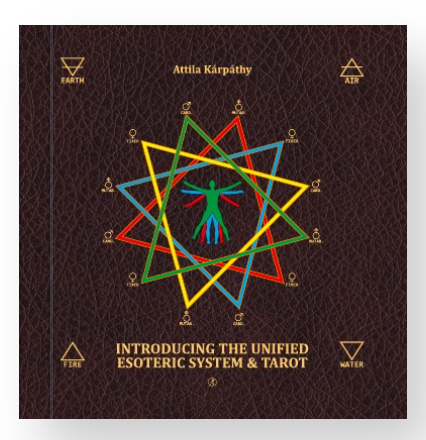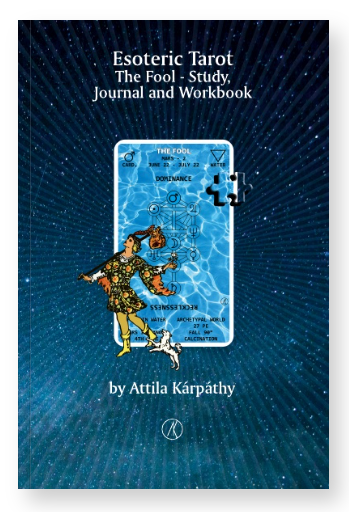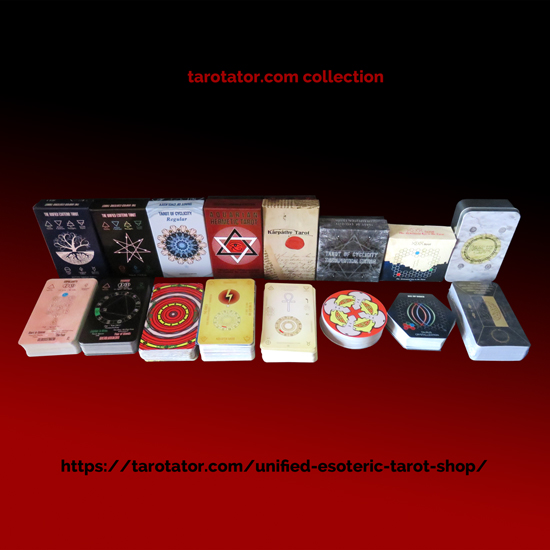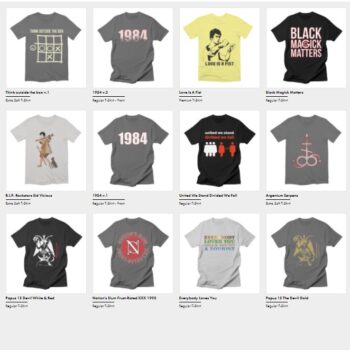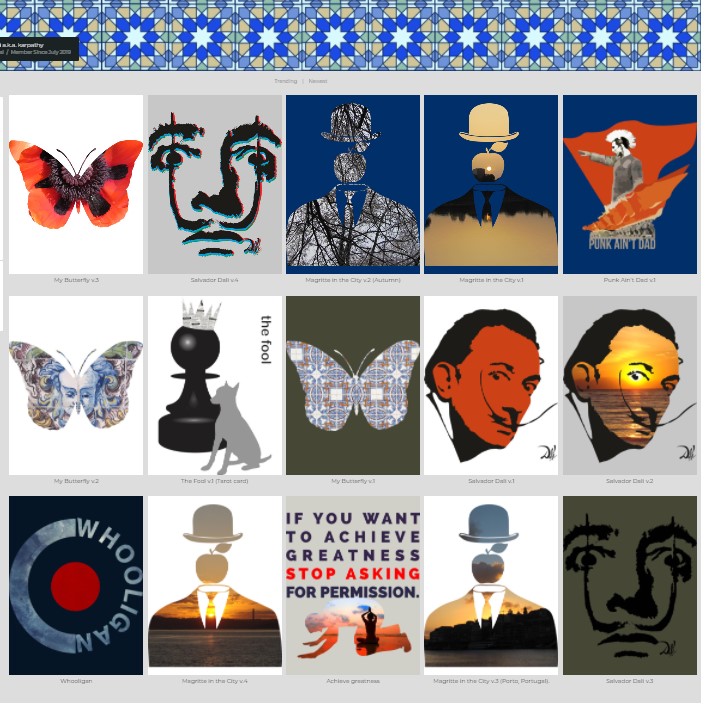 Dirty Shirt is one of the most original and active rock bands in Romania. “Dirtylicious” the forth studio album, promises to be one of the most interesting and groundbreaking releases on the Romanian and European metal stage.
Dirty Shirt is one of the most original and active rock bands in Romania. “Dirtylicious” the forth studio album, promises to be one of the most interesting and groundbreaking releases on the Romanian and European metal stage.
But what Dirtylicious it’s all about and how it sounds let’s hear it directly from the guys from the band!
“After releasing our new album “Dirtylicious” we started a “track by track” series on our Facebook page. The idea was to share with our fans the little stories behind each song. Surprisingly, there were people who actually followed this series closely and specifically asked us to continue when we temporarily interrupted it because of the tour. This is why we decided to collect these stories in one article, and we are especially grateful to Brushvox for giving us this opportunity. We hope you will enjoy it.”
CIOCÂRLIA
The idea of including this song on the album came up at the sound check before the concert in Grenoble, France (September 2013). Cosmin Petruț, our violinist at that time, played the song to test the violin sound. We thought it was awesome and spontaneously started jamming on it with him. It was fantastic, and it soon became clear to us that “Ciocârlia” was going to be the opening track on “Dirtylicious”.
The song has hundred of versions not only in Romania, but also in other East European countries. The best-known foreign interpretation is that of Goran Bregović on the soundtrack of “Underground”.
After the “European Freak Show Tour 2013” we listened to as many versions of the song as possible in order to choose the one that inspired us most. Thus, the Dirty Shirt version is based on George Enescu’s arrangement.
Before recording the album, we prepared a few “home-made” instrumental demos and used Tudor Pană’s version recorded in 1986 as “leading” track: “Ciocârlia” was the only song which Marius Sabo (violins) recorded in two different studio sessions. After the first session, he was not fully satisfied with his performance, so he asked to record it again. He proved right: his last performance came out awesome and remained on the record.
When we saw the pictures of Maramureș (our native region situated in the north-west of Transylvania, Romania) made by Alex Robciuc – who became recently famous after publishing them on Bored Panda and other web pages – we thought it would be great to use them in a video. It just so happens that Alex is a fan, and after seeing Dirty Shirt live several times he was glad to do this video project with us. Afterwards, Cristian Bălănean (our guitar player and author of our previous videos) added FX, 3D, camera movements and other video tricks to create this particular ambiance in the video.
MONEYOCRACY
– Moneyocracy was the first song written and recorded in demo version, as well as the last song that we recorded in the studio. It’s probably the track that went through most changes. During the composition and demoing process, we changed the harmony of the verses and tested at least three different melodic patterns. We did the same thing with the chorus, where we tried a lot of different vocal lines. The final version was finalized only a couple of weeks before recording the vocals. The only part that didn’t change was the main riff. We just added some crazy synths and loops to make the sound more industrial.
– At the beginning the song was much longer, but even if some of the parts were great, they were removed because we preferred a direct, simple and contrasted song with a super aggressive main riff, a traditional verse and a melodic chorus.
– The verse is an original composition based on standard harmony and melodic lines from Transylvanian folk music. The thick East European accent wasn’t planned. While recording the vocals, we found the “standard” performance a little flat and lifeless. Rini and Robi tried different interpretations, and the one with the accent turned out the best, so we kept it on the album.
– The first title for the song (at demo stage) was “Brutalicious”. The second was “A House of Cards”, but because we radically changed the vocal lines and lyrics, it was ultimately titled “Moneyocracy”.
– Even though the song had a continuous evolution, the main lyrical theme remained the same: a critical and satirical perspective of the world governed by money and selfish interests.
MONEYOCRACY
I’m so dirty, but my cronies always make me look so clean.
They are really sympathetic to my ever-growing needs.
My accounting is creative, makes me live like royalty.
But I know that image matters, so I give to charity.
Let me tell you something, I will stop at nothing
to make money, tons of money.
Leaders, cops and judges fell into my clutches.
I’m protected, well-connected.
I have mansions, diamond watches, vintage cars and football teams,
but my workers need to know that it’s a tough economy.
All is sunny, all is perfect in my own reality,
I’d be truly shocked to learn that money isn’t everything.
Let me tell you something, I will stop at nothing
to make money tons of money.
In the world of business one must have no feelings.
I’m not sorry, end of story.
Music: Mihai Tivadar
Lyrics: Leonard Ciocan
MENTAL CSÁRDÁS
– The csárdás is a traditional Hungarian folk dance whose name derives from csárda (old Hungarian term for tavern). It originated in Hungary and was popularized by Romani music (Cigány) bands in Hungary and the neighboring lands, including Transylvania.
– “Mental Csárdás” was one of the first songs written for the album, but as opposed to “Moneyocracy” it went through very few changes over time.
– The main theme was composed in a traditional style.
– Its “original” title, before the lyrics were written, was “Metal Csárdás”. However, given that the lyrics deal with mental collapse and recovery, the title was changed into “Mental Csárdás”. For maximum authenticity, the chorus lyrics are in Hungarian.
MENTAL CSÁRDÁS
I had no friends and a ton of regrets, my life was turning into a mess.
I was adrift on a sea of gloom, waiting for my imminent doom.
I felt completely trapped in a void, no one could save me, not even Freud.
My heart was pounding out of control, I couldn’t breathe or function at all.
Idegeim tönkrementek, reményeim mind elvesztek.
De az élet folytatódik, s minden lassan megoldódik.
I saw the angels coming my way, but evil demons chased them away.
I can recall how they took my hands, to join them all for one final dance.
I awoke on a hospital bed so confused from the drugs I was fed.
The doctor told me he knew for a fact: I’d had a total nervous collapse.
Idegeim tönkrementek, reményeim mind elvesztek.
De az élet folytatódik, s minden lassan megoldódik.
Why should I surrender to my gloom and doom?
Pull myself together, that’s what I must do.
Idegeim tönkrementek, reményeim mind elvesztek.
De az élet folytatódik, s végül minden megoldódik.
Music: Mihai Tivadar
Lyrics: Leonard Ciocan
MARAMU’
– Maramu’ is short for Maramureș, the name of the region where the band hails from. Maramureș is the land of wooden churches, many legends, stunning landscapes and ancient customs. It has carefully preserved its old rural culture and traditions. Check out the video for “Ciocârlia”, based on some amazing images of Maramureș taken by Alex Robciuc.
– The track is entirely inspired by traditional music from Maramureș, adapting and mixing several folk songs.
– We conducted extensive research (in old books and on the internet) to make the lyrics work for the song, which combines aggressive parts with more melodic and traditional ones. We wanted to show how cool and strong guys from Maramureș are, and it worked. This is why the “internal” song title was “Cojones de Maramu’” 🙂
– The intro, based on the traditional song “Balada lui Pintea” (Pintea’s Ballad), was added later to prepare listeners and to add a specific ambiance to the song. It was funny how two different musicians in the band (Mihai and Rini) shared the same idea about the intro without even speaking to each other.
MARAMU’
Dară Pintea n-o muritu’, numa’ un pic s-o hodinitu’.
După pui de moroşan să nu dai cu bolovan,
că dacă li-i nimeri, vai de capul tău a hi.
Câte mândre-n braţe-am strâns, tăte după mine-or plâns.
Şi pe câte le-oi mai strânge, tăte după mine-or plânge.
Şi nu m-or uita şohan că-s fecior de moroşan.
Mânaţi mă!
Fost-am omu pădurii şi nu m-or mâncat lupii,
Dară lupii nu-s nebuni să mănânce oameni buni.
Da’ când eram pruncuţ în faşă trăgeam cu ochii la moaşă.
Şi de-al dracului ce-am fost, am căzut din leagăn jos
şi la scoală dăscăliţa m-o-nvăţat sa-i ţuc guriţa.
Leliţă scurtă şi groasă, bun-ai fi de toc la coasă.
Tătă zîua să cosăsc, şi sara să te-ndrăgesc.
Palincuţă cu mărjele, tu mă-ndemni a face rele.
Păi după pui de moroşan să nu dai cu bolovan,
Că dacă li-i nimeri, vai de capul tău a hi.
Hai, ţurăi ţa!
Music inspired by several traditional songs from the Maramureş region in Romania. Arrangements and adaptation by Mihai Tivadar
Lyrics: collected and adapted by Dan Crăciun and Mihai Tivadar
BALKANIQUE
– The song is structured around a main theme which serves as base for the intro, chorus and outro. It was composed by Mihai while singing his child to sleep.
– The vocal lines in the verses went through several changes; Rini’s interpretation with the accent wasn’t planned. He did his best to sing with an impeccable French accent, but he wasn’t very pleased with the end result. Therefore, he tried a “free” version, gypsy style, with a strong East European accent, which turned out great.
– The lyrics for this song were the most difficult to write, because its ambiance wasn’t compatible with our favorite themes (social, environmental and political issues). This is why they were written by three different people: Leo Ciocan, Vali Mihnea (Bodark) and Mihai. The French verse was written after we decided on the song title.
– The song’s “internal” title before choosing the lyrical theme was “Miami Bitch” 🙂
BALKANIQUE
Mon ami, viens ici, ne joue plus la comédie!
C’est la fête, c’est la folie, il faut juste avoir envie.
Hai cu una săltăreaţă până mâine dimineaţă,
cum zicea maestrul Gică-n viaţă.
Să nu doarmă vreun vecin din Grenoble la Seini!
Haideţi toţi să ne distrăm din plin!
Vinul bun şi cântecul să-mi aline sufletul.
Iar când totul s-o găta să cântaţi în cinstea mea.
Hey, come closer, have no fear, we are all your friends in here.
We will dance a lot tonight, there’s no place for you to hide.
Dăm bilete la intrare pe un zâmbet cât mai mare,
băutură pe o-mbrăţişare.
Am avut chiar din născare joie de vivre cât încape.
Tot aşa voi fi până la moarte.
Vinul bun şi cântecul să-mi aline sufletul.
Iar când totul s-o găta, să cântaţi în cinstea mea.
Music: Mihai Tivadar
Lyrics: Vali Mihnea, Mihai Tivadar and Leonard Ciocan
DULCE-I VINU
– “Dulce-i vinu’ ” (Sweet Is the Wine) combines a variety of inspiration sources. The main one is the traditional song “Bun îi vinul ghiughiului” interpreted by Maria Tănase. (https://www.youtube.com/watch?v=VA8Bir3kdSQ). We adapted the chorus and used the lyrics for the vocal line in the verses. Other inspirations were the songs “Butelcutza” and “Touch Too” from our friends Defect: for the funky part and the aggressive ending we added vocal lines borrowed from this band. At the end, Rini is singing a drinking song from Maramureș. It wasn’t planned, but we thought it was very funny and compatible with the mood of the song.
– All traditional songs used on the track are party and drinking songs. However, since the track also has aggressive parts, we wanted to show the “reverse” side of the coin and the negative side of excessive alcohol consumption.
– As the song is based on complex measures and rhythm changes, the song’s “internal” name before finishing the lyrics was “For Țoca with Love”. Țoca is our drummer 🙂
DULCE-I VINU
Bun îi vinul ghiurghiuliu cules toamna prin târziu,
mai pe brumă, mai pe-omăt. Mult mai beu şi nu mă-mbăt.
M-am jurat că n-oi mai be, dar eu nu mă pot ţine.
Bun îi vinul, bine-mi place, nu ştiu viei ce i-oi face.
Stai aşe, nu mai be. Pe mult vin îi venin.
Ce tăt bei, vrei să pieri? Nu fii prost, fă-ţi un rost.
Bun îi vinul ghiurghiuliu cules toamna prin târziu,
mai pe brumă, mai pe-omăt. Mult mai beu şi nu mă-mbăt.
Bun îi vinul şi gustos când îl bei cu om frumos.
Dar de-l bei cu om urât, se opreşte vinu-n gât.
Stai aşe, nu mai be. Pe mult vin îi venin.
Ce tăt bei, vrei să pieri? Nu fii prost, fă-ţi un rost.
Mama me când m-o făcut – butelcuţa me,
Mi-o legat sticla de gât – butelcuţa me.
Şi mi-o zîs cu legamânt – butelcuţa me,
Să n-o dau jos de la gât – butelcuţa me.
Taci tu, taci din gură!
Taci bă băutură!
Taci tu, taci din gură!
Taci bă aburitură!
Taci tu, taci din gură!
Taci bă băutură!
Taci tu, taci din gură!
Taci bă făcătură!
De n-ar hi horincă-n sat, niciodată n-aş fi bat.
Dar aşe horincă este, şi la lume-s de poveste.
Music: inspired by several traditional Romanian songs combined with original parts by Mihai Tivadar
Lyrics: collected and adapted from several traditional songs by Mihai Tivadar and Dan Crăciun, plus original lyrics by Leonard Ciocan and Mihai Tivadar in the chorus. Last part is adapted from Defect’s song “Butelcuţa me”.
COBZAR
– The cobzar is a musician playing the cobza, a multi-stringed instrument of the lute family, popular in Romanian, Moldavian and Hungarian folk music.
– The song is partially an interpretation of an old Romanian romance called “Să-mi cânţi, cobzar, bătrân, ceva” (Play Something for Me, Old Cobzar)
– The “Celtic” style solo on acoustic instruments (violin, clarinet and accordion) appeared naturally in the song. We thought that this combination of influences from two different regions of Europe fit very well.
– The modern part is original and is based on an “old” riff that we often played at sound checks. It is one of Vlad’s favourite Dirty Shirt riffs.
– As for the lyrics, they are very moody and dark, and reflect one person’s search for redemption.
COBZAR
Să-mi cânţi cobzar bătrân ceva, să-mi cânţi ce ştii mai bine,
că vin ţi-oi da şi bani ţi-oi da, şi haina de pe mine.
Să-mi cânţi cobzar bătrân ceva, să-mi cânţi şi din vioară,
că doar s-o isprăvi cândva o viaţă atât de amară.
Lăsaţi-mă în fum să stau în crâşma-ntunecată,
să beau, să cânt şi-apoi să-nving durerea ce m-apasă.
Lost in a dark place, I’m craving for some light.
Make my hopes, make my dreams be once again alive.
I do not want your pity, just play a song for me.
Play it long, make me strong, and help me find my peace.
I’ve made mistakes and hurt those who loved me most.
My past is haunting me like an evil ghost.
I need to find a way out of this dark hole.
Your song is like a balm to my wounded soul.
Music: partly adapted from a traditional Romanian song, and partly composed by Mihai Tivadar
Lyrics: partly traditional and partly by Leonard Ciocan
HOȚII
– “Hoții” (“The Thieves”) was the first song written for the album, and was among those that we played live on our European tour in the fall of 2014 before recording “Dirtylicious.”
– The main violin theme and the traditional chorus were inspired by the Romanian folk song “Ciuleandra” which became well known due to Maria Tănase’s interpretation. This traditional theme was the starting point of naturally flowing creative process. “Hoții” is also among those songs that went through few changes only.
– The lyric structure on the verses follows Ciuleandra’s traditional pattern and style, including the original last two lines of each verse. But the theme and the content were completely changed. The song is a “call” for justice in our country, Romania, devoured by corruption. The message is very current; you know what we mean… We find the lyrics particularly brilliant. They have a strong message conveyed with humour and energy.
– The “traditional” intermezzo isn’t a “cover” of an existing song. We simply wrote and played this part in the most traditional style possible, but with groove and distorted guitars.
– “Hoții” is the song with the most uncommon structure on the album. Even though when you listen to it for the first time it seems a standard pattern, it is in fact quite complex: Main Riff – Verse – Traditional Chorus – Verse – Modern Chorus 1 – Intermezzo – Modern Chorus 2 – Main Riff – Verse – Traditional Chorus – Verse – Modern Chorus 1 – Modified Main Riff.
HOȚII
Haideţi să ieşim în stradă să-i facem pe hoţi să cadă.
Ş-înc-odată măi flăcăi, hop ş-aşa ş-aşa.
Nu mai vrem pe noi căpuşe, puneţi hoţii în cătuşe.
Ş-înc-odată măi flăcăi, hop ş-aşa ş-aşa.
Cum să îi potolim? Cât să-i mai înghiţim
când vedem cum an de an ne bagă mâna-n buzunar?
Foaie verde din pădure, nu-i lăsaţi pe hoţi să fure.
Oare ne vom trezi şi ne vom lămuri
că hoţia merge ceas când zilnic suntem duşi de nas?
Legea-i una pentru toţi, vrem să-i judecaţi pe hoţi.
Ş-înc-odată măi flăcăi, hop ş-aşa ş-aşa.
Două fire, două paie, hai cu hoţii la pârnaie.
Ş-înc-odată măi flăcăi, hop ş-aşa ş-aşa.
Paharul s-a umplut, dar hoţii n-au căzut.
Sunt la fel de mulţi ca ieri, se poartă ca nişte boieri.
Music: partly adapted from the Romanian traditional song “Ciuleandra”, and partly composed by Mihai Tivadar
Lyrics: partly adapted from the traditional song, and partly written by Leonard Ciocan
DIRTYLICIOUS
– The title track “Dirtylicious” was composed in three stages. The first half was also the first to be completed. The idea for the song came to Mihai after watching a Russian cartoon series with his son (Masha & Medved). He took the toy guitar and composed the main part in a couple of minutes, keeping a Russian ambiance in the vocal lines and the instrumental parts.
– The song remained in “stand-by” for several months and the final riffs came spontaneously while jamming with the guitar on the computer, using the instrumental demos. This explains the break in the middle of the song with a complete pattern change. All the riffs were composed in one session.
– The last stage of the composition occurred in the studio and is a fine example of how music has magic powers: it can make people from different musical horizons have a complementary and unitary feeling. The initial plan was to keep the final part only instrumental with “standard” metal arrangements. When recording the cimbalom, we forgot to stop the recording and Leonard Negrea continued playing and improvised some crazy arpeggios. Everything was recorded and we instantly fell in love with it. We even asked him to record different interpretations. Then, while editing, Mihai put all this together and so this part took on a new musical direction. Furthermore, while recording the clarinet, the same story happened with Andrei Osan. Once again, we left the recording on and Andrei improvised a clarinet solo for this part. Of course this solo perfectly matched all the other instruments. After that, it was clear for us and for the percussionist Cserey Csaba that the percussion will mix with the cimbalom seamlessly. Finally, the last layer was added by the vocals, directly in the studio (the melodic line of Rini and the “tribal” intervention of Robi).
– We also want to mention Assica Jelba (with whom we already worked on “Freak Show”) who added some crazy synths to the intro.
– The theme of the song was decided much later, after the name of the album. Before starting to write the lyrics, Leo (our main lyricist) discussed with Mihai different possible topics for the album. One of them was about the many unhealthy types of food that we ingest in restaurants or at home on a daily basis. But it is no wonder considering that we live in a society obsessed with quick profits and driven by short-termism. This has a serious impact on the environment and on our health. Be careful what you eat! We let the lyrics speak for themselves.
DIRTYLICIOUS
Ieşim la masă, luăm o ciorbă
cu multă grijă preparată dintr-un plic.
Mâncăm un şniţel, e cam elastic.
Stomacul strigă: „Aţi dat banii pe nimic!”
Primim un tort din partea casei, dar este plin de mucegai,
apoi un suc cu gust de portocale şi un vin cu coloranţi.
Mâncăm mezeluri cu multe E-uri,
poate de aia ni-i stomacul balonat.
La prăvălie lumea ne spune:
„Vaca-i nebună, puiul iarăşi e gripat.
Iar peştele-i cu cianură şi cu mercur contaminat.”
Aşa că, hai să ne-ndulcim amarul cu o horincă şi-un taraf!
Doamna cu Coasa aşterne masa.
Music: Mihai Tivadar
Lyrics: Leonard Ciocan
MY ART
– My Art was the last song completed before we entered the studio. For a while we weren’t sure whether or not we should include it on the album as it was less “traditional” than the rest. But we made the wise decision to give it a try and started to record it. During the recording and mixing process, the song acquired new dimensions, became much more than the instrumental demo.
– The song has three different chorus vocal lines using the same harmonic structure. The first two complement each other in the first two choruses, and the third is in the final chorus.
– The vocal line of the chorus was the most “negotiated” between band members, but finally all good ideas were kept and the song gained in complexity because of mixing different lines.
– My Art is the biggest surprise on the album for us. Because it has also had great success live during the Romanian leg of the Dirtylicious Tour (May 2015), we decided to use live footage and make a video for it.
– While preparing the show for the national tour, we “toyed” with the closing theme which resulted in the live version being much longer. My Art is really the most epic song we have ever created.
– The lyrics are very honest and emotional. They are our artistic manifesto, our statement of intent as artists.
MY ART
All I wanted from the start was to write my music from the heart
and to think outside the box. These are my art’s vital building blocks.
I take chances, but won’t follow any trends, I will not accept advice from phoney friends
who just want to make more money on my back… and that’s a fact.
If my music is genuine, I’ll never lose, but always win.
Independent until the end, I will explore, but won’t pretend.
I won’t be a mainstream clown in a circus open all year round.
Vultures circle me in vain if they think my art is up for sale.
If the price to come out of the underground is to water down my message and my sound,
then I’d rather stay forever where I am… It is no shame.
If my music is genuine, I’ll never lose, but always win.
Independent until the end, I will explore, but won’t pretend.
Art is true to the core if it carries a soul.
Doing things my own way is in my DNA.
Music’s what I live for, makes me feel alive every day and every night.
I am moving forward off the beaten track. There’s no point in looking back.
Let me say this aloud: I will never sell out,
always follow my heart in creating my art.
Music: Mihai Tivadar
Lyrics: Leonard Ciocan
CĂLUȘARII
– The Călușari were members of a Romanian secret fraternity who practiced a ritual acrobatic dance known as the căluș. According to the Romanian philosopher Mircea Eliade, the Călușari were known for “their ability to create the impression of flying in the air” which he believed was reminiscent of both galloping horses and dancing fairies. For the dance, the Călușari, clad in folk costumes, carried clubs and a sword, as well as a flag and a wooden horsehead. They swore on the group’s flag to treat each other as brothers, to respect the customs of the Călușari and to remain chaste for the next nine days. Upon their return home, their flag was fixed into the ground, with one member climbing it and crying out “war, dear ones, war!” (source Wikipedia).
– You can watch here an example of this dance.
– The “Căluș” dance was included in Unesco’s intangible cultural heritage.
– The idea of including Călușarii in the album came up by chance, when we saw this song shared by Radu Muntean – a good friend of us (who also participated as a technician in the album recordings) – on Facebook. When we gave it a listen, we found its groove awesome, and the final part has an incredible amount of energy.
– The song has hundreds of versions, and we based our interpretation on the arrangement that Radu shared on the Internet (Doina Olteniei, 1968).
– Since we decided to include “Ciocarlia” on the album (another Romanian instrumental song), it was clear that the album will start with Ciocarlia and will end in symmetry with Calusarii.
– This song demands exceptional virtuoso skills, and we had the luck to record the album with great traditional musicians (Transylivanian Folkcore Orchestra): Marius Sabo (violins), Andrei Oşan (clarinet), Leonard Negrea (cimbalom), Ciprian Ghiaţă (accordion) and Cserey Csaba (percussion).





